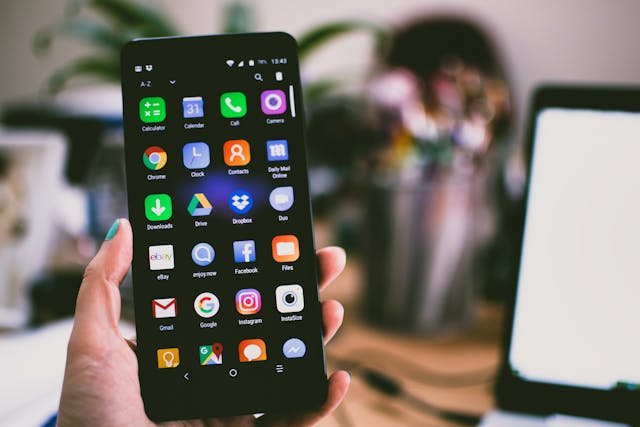In the mobile-first era we live in today, Android leads the worldwide smartphone market with more than 70% market share. For companies seeking to reach a broad audience, building a solid Android app is no longer a choice, it’s necessary. But creating a solid Android app takes much more than mere coding; it takes experience, strategy, and a partner that gets your business objectives.
That is where bringing in a professional Android application development firm comes in. Whether you are a startup wanting to create an MVP or an enterprise trying to digitalize your operations, this guide takes you through how to get the right Android application development firm.

Post Contents
Step 1: Define Your App Requirements Clearly
Clarity is paramount before you go hunting for a development partner. Begin by asking yourself these questions:
- What is the app used for?
- Who is your target market?
- Which platforms or devices should it be compatible with?
- What are the essential features you need?
- What is your budget level?
- What is your launch timeline?
Having a clear project scope allows potential partners to accurately evaluate the work and saves time on proposal negotiations.
Pro Tip: Create a standard app brief or feature list. Visual aids such as wireframes or reference apps aid in better communication of your expectations.
Step 2: Decide between Freelancers and Development Companies You have two general options:
Freelancers:
- Suitable for small, low-cost projects.
- Provide flexibility and lower cost.
- Lack of project management capabilities and scalability.
Android App Development Companies:
- Provide complete services ranging from strategy to UI/UX design, development, QA, and support.
- Provide a team with varying skill sets.
- Provide greater reliability, particularly for medium to large-sized projects.
If you want quality, consistency, and responsibility, employing an Android app development company is the way to go.
Step 3: Research and Narrow Down Companies
Look for companies through:
- Google (e.g., “Best Android app development companies in India/USA”)
- B2B review websites such as Clutch, GoodFirms, and AppFutura • LinkedIn, Reddit, or communities related to your industry
While narrowing down your choice, look for the following:
- Portfolio: Find Android apps like the kind you wish to create.
- Experience: 3+ years of experience in Android app development is typically a positive indication.
- Client Testimonials: What do previous clients say?
- Domain Expertise: Have they handled work in your niche previously?
Bonus Tip: Sort companies by size. A mid-sized agency can give more individual attention than a bigger one.
Step 4: Assess Technical Expertise and Know-How
A good Android development company ought to have:
- Good mastery of Java and Kotlin
- Familiarity with Android SDKs, Jetpack, and APIs
- Familiarity with Material Design Guidelines
- Expertise in database integration (SQLite, Room)
- Proficiency in tools like Android Studio, Git, and Firebase
- A track record of publishing apps on Google Play Store
Also, inquire about their development approach:
- Do they follow Agile or Scrum methodologies?
- How do they manage version control?
- What QA processes do they follow?
Keep in mind that you’re not just hiring coders, you’re hiring a tech partner.
Step 5: Assess Communication and Collaboration
Communication can make or break your app development experience. Ask the company:
- What are your communication tools (Slack, Jira, Zoom)?
- Will I have a project manager assigned to me?
- How often will I receive progress reports?
- How do you process change requests?
Pick a team that’s transparent, responsive, and proactive. Good code is worthless if you’re constantly in the dark.
Step 6: Ask About Design and User Experience
An excellent app is not merely functional, it’s enjoyable to use. Ask for UI/UX examples and design capabilities:
- Do they adhere to Material Design principles?
- Can they deliver wireframes and prototypes?
- Do they conduct usability testing?
You desire a team that creates apps users love, not simply use.
Step 7: Familiarize Yourself with the Development Process
Take a tour of their end-to-end process. A typical Android app development cycle involves:
- Requirement Gathering
- Wireframing & Design
- Development in Iterations
- QA & Testing
- App Deployment
- Post-Launch Support
Make sure to clarify:
- How long will each step take?
- How do they deal with bugs or problems during/after launch?
- Do they provide maintenance and updates?
A clear process equals less surprises and clear outcome delivery.
Step 8: Check Their Pricing Model
Most mobile app development service companies usually provide:
- Fixed Pricing (for well-defined work)
- Time & Material (for flexible, changing requirements)
- Dedicated Resources (for long-term or repeat work)
Request a break-down of the costs in terms of:
- Development
- Design
- Testing
- Project Management
- Third-party tools (if any)
- Opt for value over cost.
Step 9: Check Legal and Contractual Details
Before signing, make sure to:
- Sign a Non-Disclosure Agreement (NDA) to protect your idea.
- Clarify IP ownership, you should own the code and assets.
- Outline milestones and payment terms.
- Include a support clause for post-launch maintenance. Having everything in writing protects both parties and sets clear expectations.
Step 10: Start with a Pilot or MVP
If you’re unsure about long-term engagement, start small.
- Develop an MVP (Minimum Viable Product) first.
- Verify your concept with actual users.
- Try the company’s skills and dependability.
- Expand the partnership when you are confident.
Conclusion
Employing an Android app development company is a business decision that reflects on your brand, your users, and your growth. Invest the time to scrutinize companies thoroughly, not merely on cost or schedule, but on competence, communication, dependability, and common vision.
Ultimately, your dream partner is not only a vendor, but a collaborator of your online success.